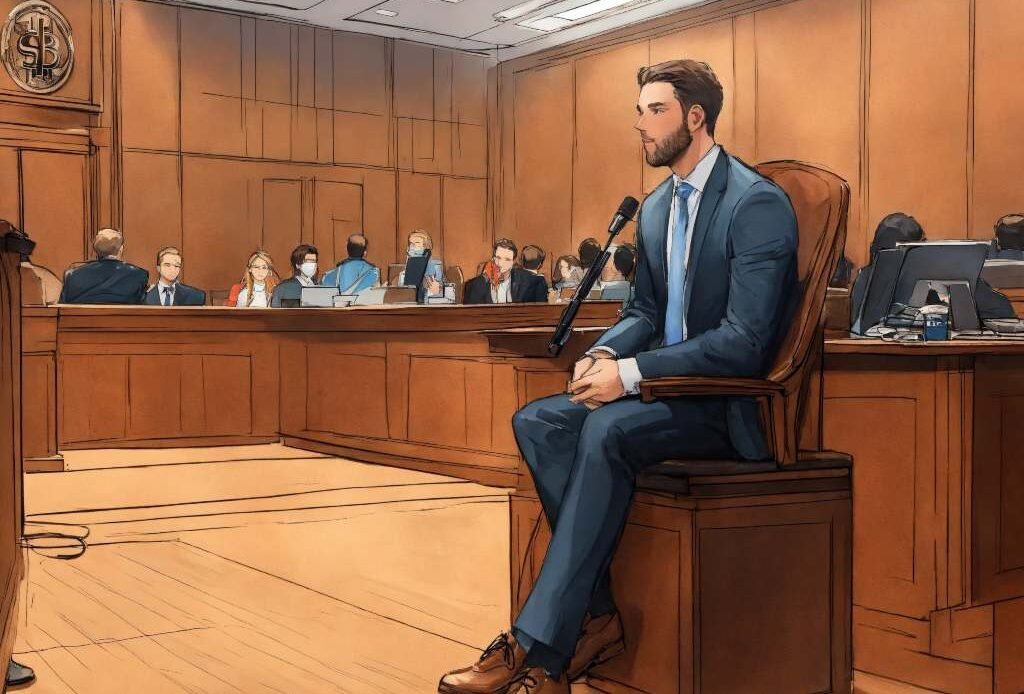When navigating the complex world of personal injury cases, we often spotlight the roles of attorneys, judges, and juries. But what about court reporters? Could these professionals, traditionally seen in the background, typing away furiously, hold the keys to unlocking your case’s potential? Let’s peel back the layers on the often-overlooked but crucial role of court reporters in personal injury cases. Read on to discover how they can influence the outcome of your case beyond just providing a word-for-word transcript.
Gatekeepers of Courtroom Testimony
At the heart of any personal injury case is the testimony. Witnesses take the stand, sharing recollections and statements that could sway the case in one direction or another. Here enters the court reporter: the silent observer ensuring every word is captured accurately. These transcripts become the official record of the proceedings, used by attorneys for cross-examination and by judges to make informed decisions. With a precise record, critical nuances and statements could be recovered, potentially altering the case’s outcome.
Ensuring Accurate Depositions Outside the Courtroom
Depositions are a critical component of the personal injury litigation process, often conducted in less formal settings like attorneys’ offices. These sworn statements are taken well before a case goes to trial and can significantly impact its direction. Here, court reporters play a pivotal role in ensuring that every word is accurately transcribed, creating an immutable record that can be used in court.
This is especially crucial in instances where a witness cannot attend the trial in person. The expertise of a court reporter ensures that these depositions are just as reliable and enforceable as in-court testimony. For instance, if an auto injury lawyer wants to prove negligence, the detailed account of a deposition transcribed by a court reporter could be the linchpin of the case.
Realtime Reporting and Its Advantages
Advancements in technology have introduced realtime reporting to the courtroom, a service where court reporters provide an immediate transcription of the proceedings. This instant access to testimony allows attorneys to make quicker, more informed decisions. For example, during a trial or deposition, a lawyer can immediately reference a witness’s statement made moments before, allowing for more effective cross-examination and argument formulation. In personal injury cases, where every detail can tip the scales of justice, realtime reporting ensures that attorneys have all necessary information at their fingertips, promoting a more dynamic and responsive legal strategy.
Impact of Local Expertise
Local court reporters bring an intimate understanding of the legal landscape, including specific terminology, procedures, and even the preferences of local judges. This expertise ensures that the transcription process is not only accurate but also tailored to meet the unique requirements of the jurisdiction. For personal injury cases, where local laws and statutes can significantly influence outcomes, this local insight is invaluable.
That’s why, for instance, if your case is being heard in Southern California, having Anaheim court reporters with their fingers on the pulse of the local legal scene can provide an undeniable edge. Their familiarity with regional legal nuances can subtly guide the transcription process, ensuring that every record is as impactful and relevant as possible.
Role in Settlement Negotiations
Beyond the courtroom, court reporters also play a pivotal role in settlement negotiations. Accurate and detailed transcripts of depositions, hearings, and other legal proceedings provide a basis for negotiation, giving attorneys the ammunition needed to argue for a fair settlement.
In personal injury cases, where out-of-court settlements are common, the transcript provided by a court reporter can serve as a powerful tool in highlighting a case’s strengths or exposing the weaknesses in the opposition’s claims. Court reporters’ ability to deliver precise and timely transcripts means that attorneys can enter negotiations fully armed with the necessary documentation to support their client’s position.
Enhancing Accessibility for All Parties
Finally, the contributions of court reporters extend to making the legal process more accessible. Through services like closed captioning and CART (Communication Access Realtime Translation), court reporters ensure that people with hearing impairments can also participate fully in the legal process. This aspect of court reporting is especially critical in personal injury cases, where the parties involved may already be facing significant physical challenges. By providing realtime transcription of courtroom proceedings, court reporters ensure that everyone has equal access to justice, regardless of disability.
Court reporters play a multifaceted and indispensable role in personal injury cases. From capturing every word of testimony to providing realtime translations and ensuring accessibility for all, their contributions are pivotal to the justice system’s integrity and efficiency. The role of court reporters will undoubtedly expand, underscoring their position as key players in the pursuit of justice. Whether it’s leveraging local expertise in Anaheim or utilizing the latest real-time real-time realtime reporting technology, these professionals do more than just record words; they ensure that everyone’s voice is heard loud and clear in the quest for justice.
Final Lines
Court reporters are the unsung heroes of personal injury cases, playing a multifaceted and indispensable role in the pursuit of justice. From capturing accurate testimony to providing realtime translations and ensuring accessibility for all, their contributions are pivotal to the integrity and efficiency of the legal system. As technology advances and the legal landscape evolves, the role of court reporters will undoubtedly expand, further underscoring their position as key players in the quest for fair outcomes. Whether it’s leveraging local expertise or utilizing cutting-edge reporting technology, these professionals do more than just record words; they ensure that every voice is heard loud and clear, paving the way for justice to prevail in personal injury cases and beyond.
